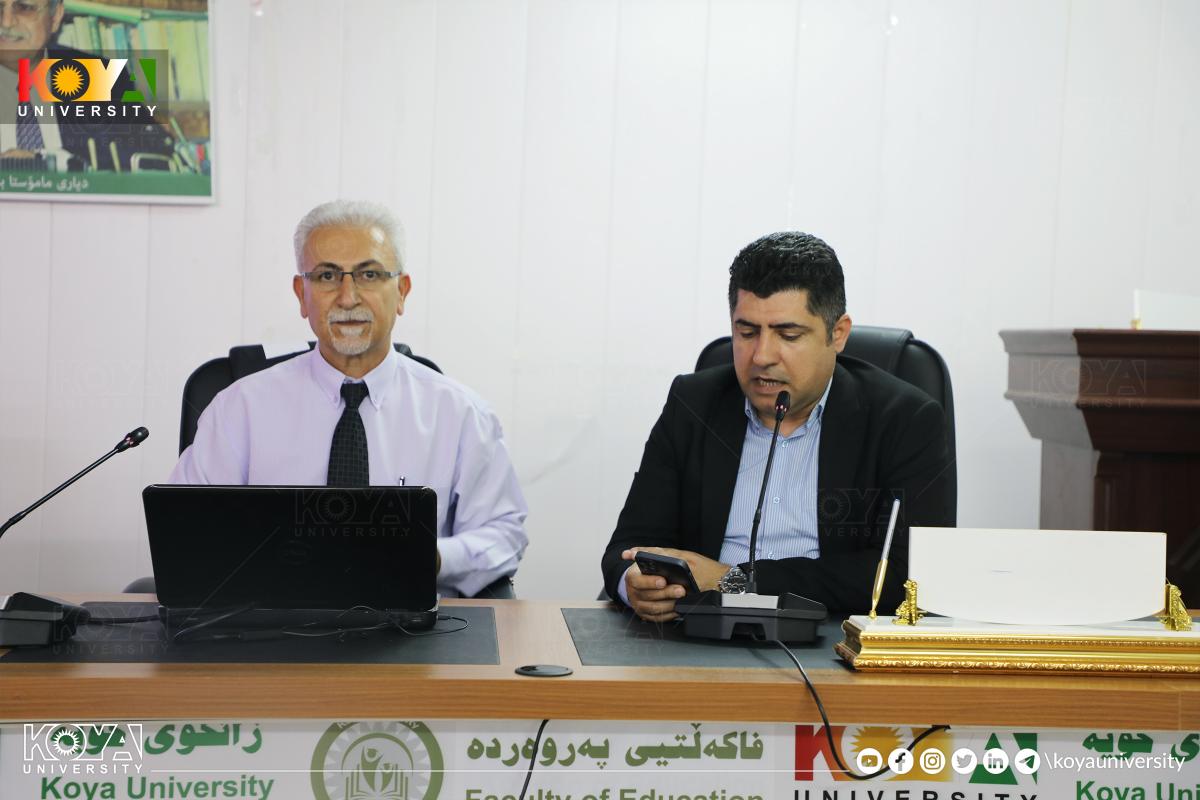"Why the Treaty of Sevres was not put in place? Some lessons for the Kurds" was the topic of a special seminar organized by the history department of the faculty of education at Koya University for Asst. Prof. Dr. Sherko Kirmanj.
The Department of History of the Faculty of Education of Koya University presented a seminar on Sunday, May 7, 2023, accompanied by the Dean of the Faculty of Education of Koya University, Prof. Dr. Safin Jalal, and an impressive number of teachers and students in their presence. Asst. Prof. Dr. Sherko Kirmanj presented "Why the Treaty of Sevres was not put in place? Some lessons for the Kurds" in Tahir Bakr's hall at the Faculty of Education.
The seminar got underway with a welcome address from Asst. Prof. Dr. Hoshmand Ali, head of the History Department at Koya University, who also gave a short biography of Prof. Sherko Kirmanj and addressed the significance of organizing such a seminar.
The Treaty of Sèvres was an international agreement signed on August 10 between the Ottoman Empire and the British, French, and Italian allies who won World War I. Kurdish rights were acknowledged by an official international agreement, and the creation of an autonomous zone was promised to the Kurds.
Asst. Prof. Dr. Sherko Kirmanj attempted to highlight the lessons and experiences that Kurds can and should learn from the Treaty of Sèvres during the seminar while offering a thorough discussion on the issue of the Treaty of Sevres and examining the international and domestic circumstances in Kurdistan at that time. An example of a competing coalition on concerns and interests is the French-British alliance that resulted in the Treaty of Sevres, particularly with regard to the Kurdish issue.
Another issue that Dr. Sherko regarded seriously was the Kurds' inability to predict sudden changes, particularly in relation to the fall of the Russian Empire and the rise of the communists, which the Kurds were unable to handle but which, on the other hand, the Turks took advantage of.
Dr. Sherko Kirmanj perceived the development of the communists in Russia from a strategic point of view, seeing it as a geopolitical upheaval rather than just an ideological one, which led the French and British to engage with the Kemalists and disregard the Treaty of Sevres. It revealed Turkey's geostrategic and political blockade of communism and the Soviet Union.







